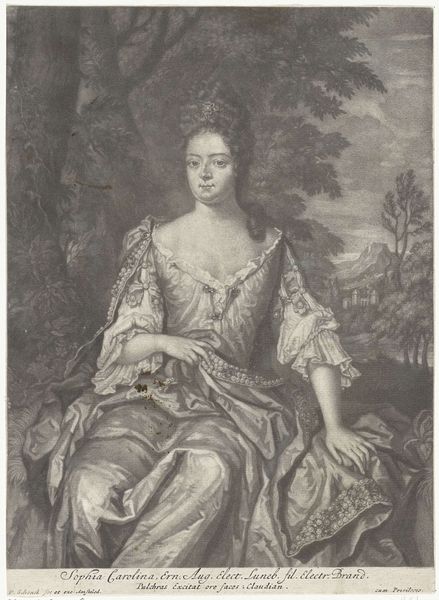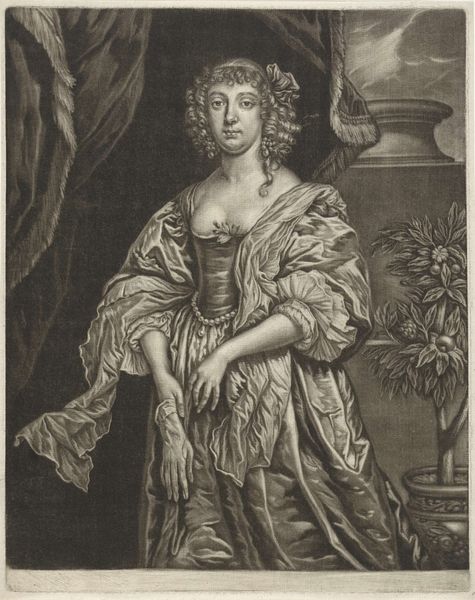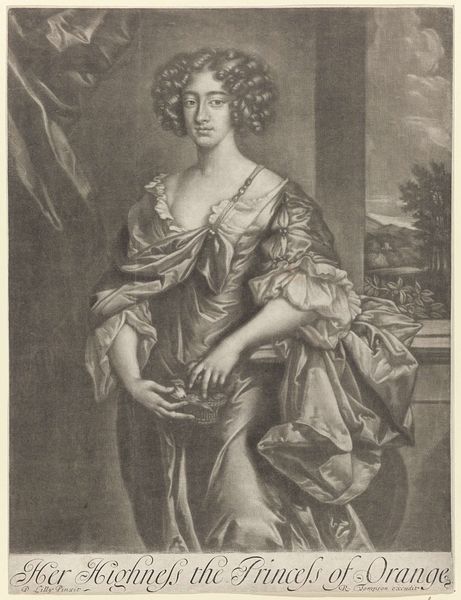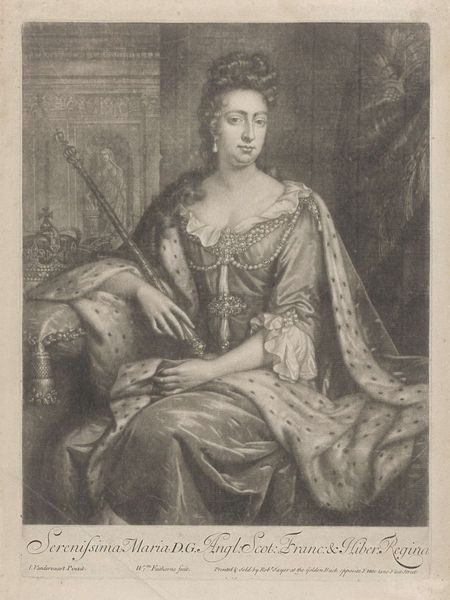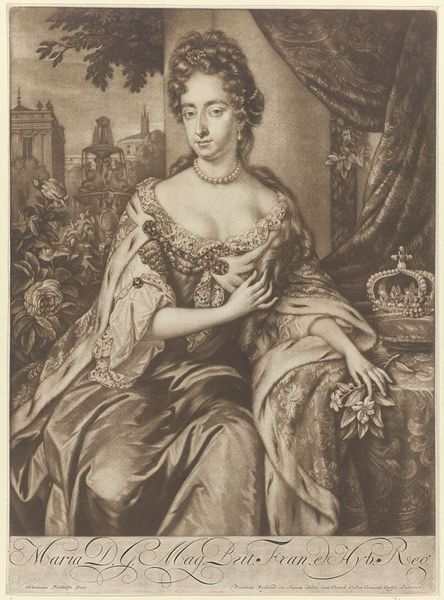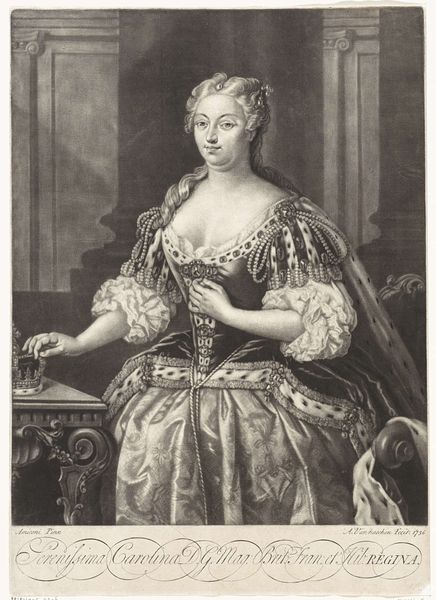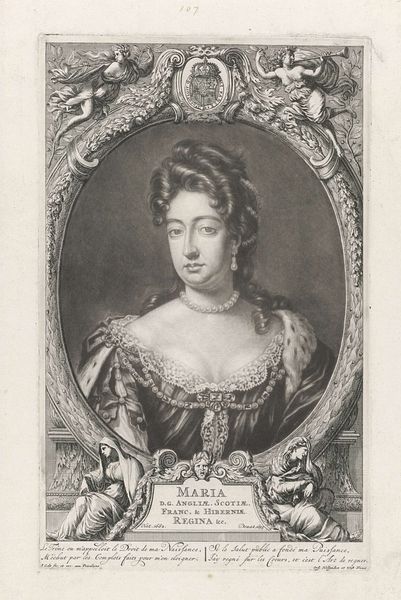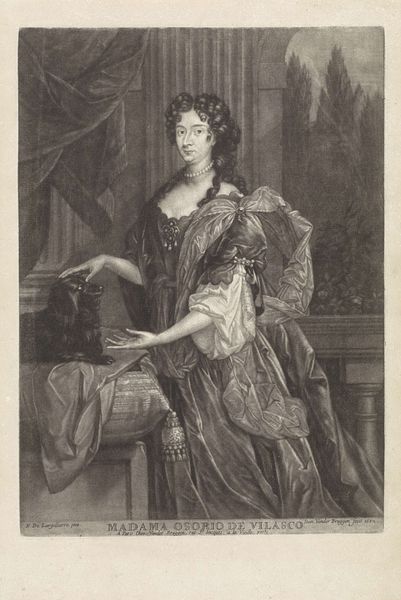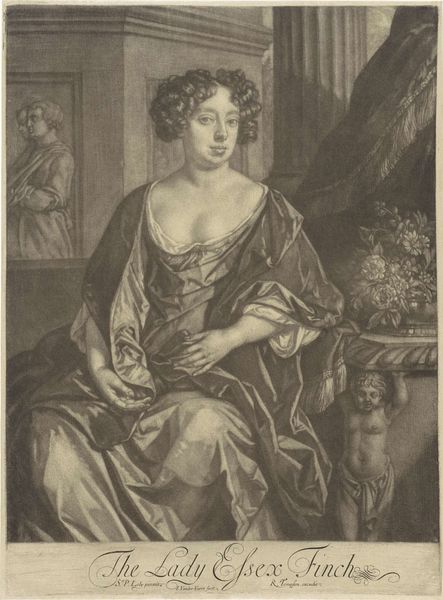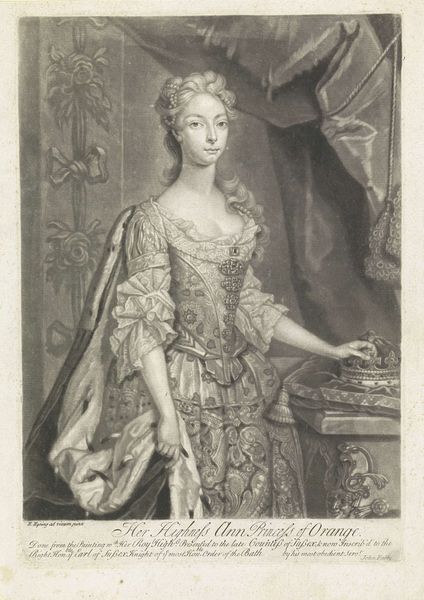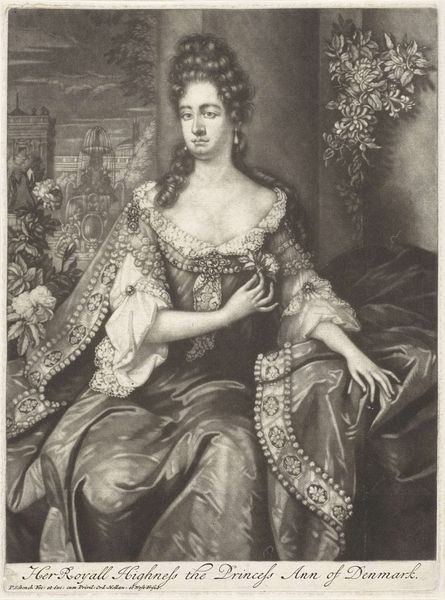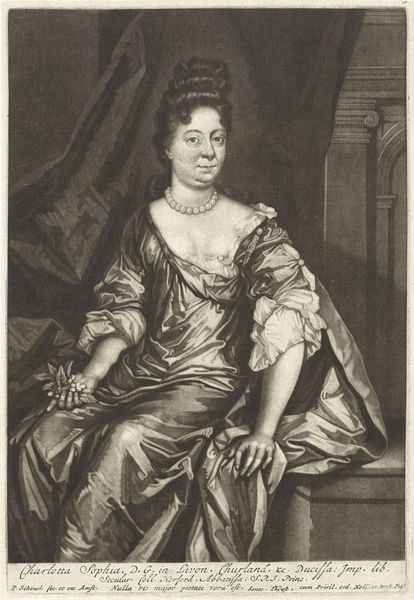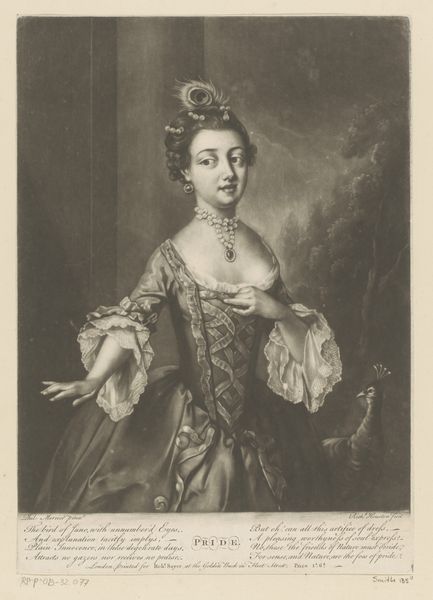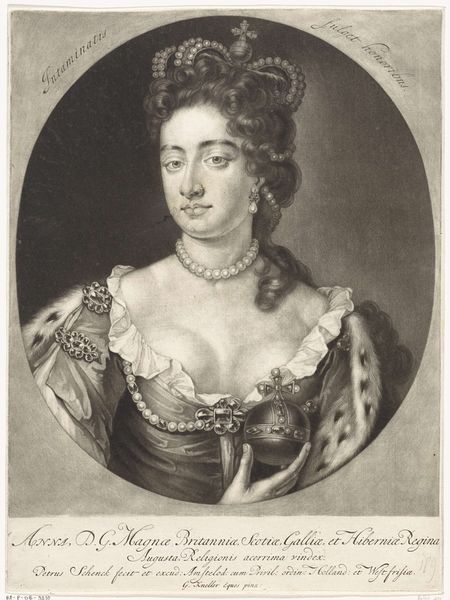
print, engraving
#
portrait
#
baroque
# print
#
portrait reference
#
history-painting
#
engraving
Dimensions: height 246 mm, width 186 mm
Copyright: Rijks Museum: Open Domain
This portrait of Maria II Stuart was made by Pieter Schenk, using the printmaking technique of mezzotint. Mezzotint is a laborious process. The metal plate is roughened evenly, creating a surface that would print solid black. Then, using specialized tools, the printmaker burnishes or scrapes away areas to create lighter tones. Schenk was a master of this technique, skillfully manipulating the plate to achieve a wide range of tonal values. The velvety texture unique to mezzotint lends itself well to depicting the luxurious fabrics and textures of the Queen’s garments. Consider the immense labor involved in creating this image. The techniques required specialized knowledge and years of training, indicative of a highly developed craft tradition. Yet, prints like these existed in a complex relationship with the rise of capitalism. They served as a means of disseminating royal images and promoting the monarchy, while also functioning as commodities themselves, bought and sold in the marketplace. The Queen’s likeness became both a symbol of power, and a consumer good. Looking closely at the materials and processes used to create this portrait reminds us that art is always embedded in a social and economic context.
Comments
No comments
Be the first to comment and join the conversation on the ultimate creative platform.
